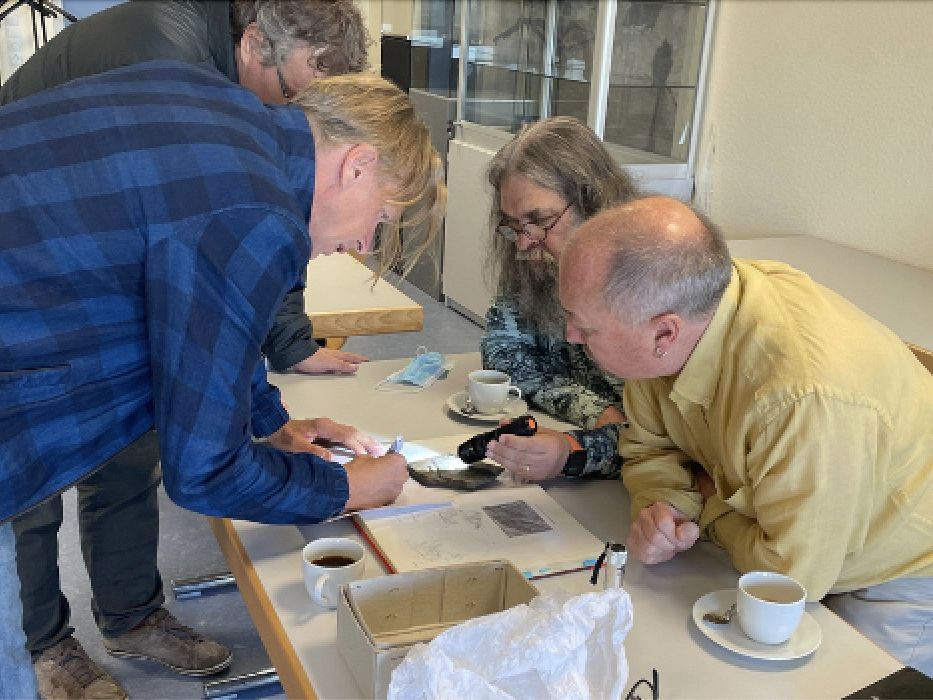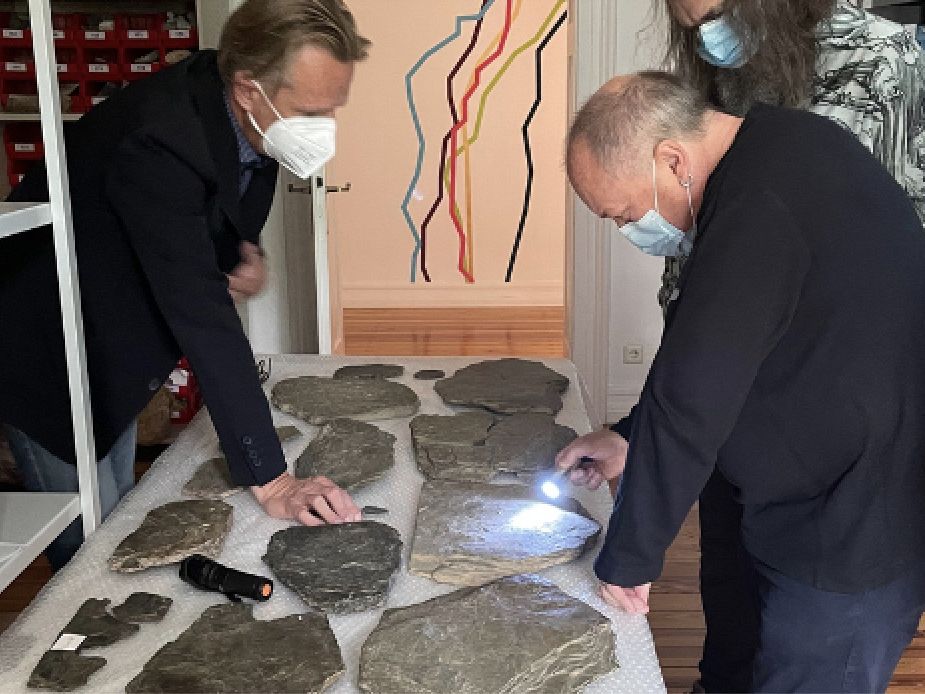A new interdepartmental research collaboration between our Departments of Archaeology and Psychology is experimenting with the online visual perceptions of Ice Age arts through their newly launched project website, Palaeo Vision: Do you see through Ice Age Eyes?
You’re invited to take part in their study through the website, which has a series of experiments that will enhance one’s understanding on how it feels to see through Ice Age eyes.

Researchers from our Departments of Archaeology and Psychology
The Palaeo Vision project
Our researchers have been studying the way in which people from the last Ice Age (more specifically the Upper Palaeolithic), which is roughly 16,000 years ago, engaged with their daily surroundings through the medium of art.
The works were left behind when the people abandoned their campsite on the banks of the Rhine.
This interdisciplinary project combines the more traditional methods from prehistoric archaeology with those from the psychology of vision and action (haptics) to explore how people functioned in their living spaces in the past.
The use of visual psychological research methods to explore Ice Age art has been pioneered by Dr Lisa-Elen Meyering, the team’s postdoctoral researcher.

Researchers analysing stone artefacts
Analysing stone artefacts from Ice Age
The team was joined by specialists to analyse the flat stone artefacts recovered from the campsites in Central Rhineland, Germany.
These artefacts are of particular interest to the team as they hold key information on how Ice Age people saw their world.
Using cutting-edge digital methods of analysis, the team will tease out the hands of individual artists and their psychological biases.
Find out more
- Learn more about the work of Professor Paul Pettitt and Professor Robert Kentridge.
- Visit the project website.
- Take part in the research experiment here.
